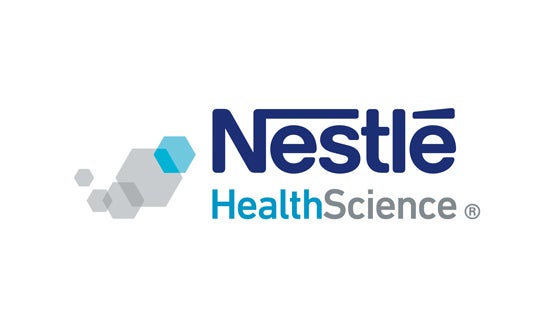
Three Research Leaders Join Forces To Study Diet's Role In Inflammatory Bowel Diseases
Three-Year Study Will Compare Effects of Different Diets on Gut Bacteria and Metabolites
NEW YORK, March 2, 2015 -- The Crohn's & Colitis Foundation of America (CCFA) today announced that it has entered into a research partnership with the Perelman School of Medicine at the University of Pennsylvania, and Nestlé Health Science, to study the effects of diet on gut bacteria. The study is part of a major CCFA effort to develop new treatments targeting the gut microbiome—the "ecosystem" of microbes populating the intestines—linked to the development of inflammatory bowel diseases (IBD). Partnerships such as these are extremely beneficial in moving the research forward at a much faster pace.
"We are delighted to be working with such esteemed partners on this important work. Determining how diet affects the microbiome—and in turn affects the course of IBD—has major implications for efforts to improve the quality of life for patients and families affected by IBD," comments Caren A. Heller, MD, MBA, CCFA's Chief Scientific Officer. "This study has tremendous potential to inform the development of novel and alternative therapies that address the cause of IBD, as well as the symptoms.
" Part of CCFA's Microbiome Initiative, the Food and Resulting Microbial Metabolites (FARMM) study aims to understand how different diets—including a vegan diet and a defined formula diet sometimes used in treating IBD—influence the bacteria and bacterial products in the intestine.
In the FARMM study, healthy volunteers will follow a defined "Western" diet, vegan diet, or formula diet for two weeks. The researchers will look at how the three diets affect the population of microbes present in the gut, as well as the individual's metabolomic profile. Cutting-edge tools and techniques will be used to identify microbial, metabolomic, and immune system "signatures" that may be involved in the development or treatment of IBD.
The findings will be an important first step toward understanding how a formula diet (exclusive enteral nutrition) works to induce remission in patients with Crohn's disease. The study will also provide new information on how antibiotics affect the gut microbiome and the metabolites produced by these organisms.
"We hope this research will advance our understanding of the complex relationship between our diet, the microrganisms that live in our gut, and the small molecules they produce that end up circulating throughout our body," comments one of the principal investigators on the study, Gary Wu, MD, the Ferdinand G. Weisbrod Professor in Gastroenterology at the Perelman School of Medicine at the University of Pennsylvania, and co-director of the Penn-Children's Hospital of Philadelphia (CHOP) Microbiome Program.
Along with other factors, diet and the gut microbiome may play an important role in the development and progression of IBD. Studies have linked a diet high in total fats and meat to an increased risk for IBD, while high fiber, fruit, and vegetable intake are associated with a decreased risk. Co-principal investigator James Lewis, MD, MSCE, professor of Gastroenterology at the Perelman School of Medicine at Penn and director of Penn's Gastroenterology and Hepatology Clinical Research Program, noted that, "We hope that these discoveries will provide a launch pad for developing novel interventions aimed at manipulating microbial targets with the goal of treating or even preventing IBD without suppressing the immune system."
Both Lewis and Wu are being compensated for their involvement in this study. Funding for the study is provided by the CCFA and Nestlé Health Science. Drs. Wu and Lewis both report receiving honoraria from the Nestlé Nutrition Institute.
Making Progress Together
"This research partnership with top scientists and clinicians at the University of Pennsylvania, as well as the CCFA, is a high priority for Nestlé Health Science. It will not only allow for a better understanding of the role of nutrition in chronic disease, but also pave the way to develop safe and effective nutritional therapeutic approaches to improve patient's quality of life," comments Irène Corthésy, Head of R&D at Nestlé Health Science.
Crohn's disease and ulcerative colitis are painful, medically incurable illnesses that attack the digestive system. Crohn's disease may attack anywhere along the digestive track, while ulcerative colitis inflames only the large intestine (colon). Symptoms may include abdominal pain, persistent diarrhea, rectal bleeding, fever, fatigue and weight loss. Many patients require hospitalization and surgery. These illnesses can cause severe complications, including colon cancer in patients with long-term disease. Some 1.6 million American adults and children suffer from Crohn's disease or ulcerative colitis.
About the Crohn's & Colitis Foundation of America
The Crohn's & Colitis Foundation of America (CCFA) is the largest voluntary non-profit health organization dedicated to finding cures for Inflammatory Bowel Diseases (IBD). CCFA's mission is to cure Crohn's disease and ulcerative colitis, and to improve the quality of life of children and adults who suffer from these diseases. The Foundation works to fulfill its mission by funding research, providing educational resources for patients and their families, medical professionals, and the public, and furnishing supportive services for those afflicted with IBD. For more information, visit www.ccfa.org, call 888-694-8872, like us on Facebook, find us on LinkedIn or follow us on Twitter and Pinterest.
About Nestlé Health Science
Nestlé Health Science, a wholly-owned subsidiary of Nestlé, is a health-science company engaged in advancing the role of nutritional therapy to change the course of health for consumers, patients and our partners in healthcare. Its portfolio of nutrition solutions, diagnostics, devices and drugs, targets a number of health areas, such as inborn errors of metabolism, pediatric and acute care, obesity care, healthy ageing, and gastrointestinal and brain health. Nestlé Health Science employs around 3,000 people worldwide and is headquartered in Vevey, Switzerland. For more information, please visit www.nestlehealthscience.com.
